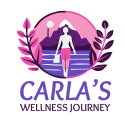Boost Your Health: A Guide to Essential Vitamins and Supplements for Everyday Wellness

In today’s fast-paced world, maintaining a balanced diet can be challenging, and our bodies
sometimes need a little extra support to stay healthy and energized. Vitamins and supplements
play a crucial role in filling nutritional gaps, supporting various bodily functions, and enhancing
overall wellness. Whether you're looking to boost your immune system, improve your energy
levels, or support specific health goals, the right supplements can make a significant difference.
In this guide, we’ll explore essential vitamins and supplements that can help you achieve
optimal health and well-being.
1. Understanding the Role of Vitamins in Your Health
Vitamins are organic compounds that are essential for various metabolic processes in the body.
While most vitamins can be obtained through a balanced diet, supplementation can be
beneficial in ensuring you get the right amounts, especially if your diet lacks certain nutrients.
Vitamin D: The Sunshine Vitamin
Vitamin D is crucial for maintaining healthy bones and teeth, as it helps the body absorb
calcium. It also plays a role in immune function, reducing inflammation, and supporting muscle
health. Unfortunately, many people are deficient in vitamin D, especially during the winter
months when sunlight exposure is limited.
Taking a vitamin D supplement can help ensure you maintain adequate levels, particularly if you
live in a region with limited sunlight or spend most of your time indoors. Look for vitamin D3, the
most effective form of the vitamin, which is better absorbed by the body.
Vitamin C: Immune System Support
Vitamin C is a powerful antioxidant that supports the immune system, helps the body produce
collagen, and aids in the absorption of iron. It’s also essential for skin health, as it promotes
healing and protects against damage from free radicals.
While vitamin C is abundant in fruits and vegetables, such as oranges, strawberries, and bell
peppers, supplementation can be beneficial, especially during cold and flu season or if your diet
lacks sufficient produce. A daily vitamin C supplement can help strengthen your immune system
and support overall health.
B Vitamins: Energy and Metabolism Boosters
The B vitamins, including B6, B12, and folic acid, play a crucial role in energy production,
metabolism, and brain function. They help convert the food you eat into energy, support red
blood cell formation, and promote a healthy nervous system.
B12, in particular, is important for vegetarians and vegans, as it is primarily found in animal
products. A B-complex supplement that includes all the essential B vitamins can help ensure
you get the necessary amounts, supporting energy levels, cognitive function, and overall well-
being.
Vitamin A: Vision and Skin Health
Vitamin A is essential for maintaining healthy vision, immune function, and skin health. It plays a
critical role in eye health, helping to prevent conditions like night blindness and age-related
macular degeneration.
Vitamin A can be found in foods like carrots, sweet potatoes, and spinach. However,
supplementation may be necessary for those with specific dietary restrictions or health
conditions. Look for supplements that provide beta-carotene, a precursor to vitamin A, which the
body can convert as needed.
2. Key Minerals for Supporting Vital Functions
Minerals are inorganic elements that the body needs to perform various functions, including
building bones, making hormones, and regulating heart function. Like vitamins, they are crucial
for overall health and may require supplementation depending on your diet and lifestyle.
Calcium: Bone Health and Beyond
Calcium is the most abundant mineral in the body, essential for building and maintaining strong
bones and teeth. It also plays a role in muscle function, nerve transmission, and blood clotting.
While dairy products are a well-known source of calcium, those who are lactose intolerant or
follow a plant-based diet may need to supplement their intake. Calcium supplements, especially
when paired with vitamin D, can help ensure you meet your daily requirements and maintain
strong bones throughout life.
Magnesium: The Relaxation Mineral
Magnesium is involved in over 300 biochemical reactions in the body, including energy
production, muscle and nerve function, and blood sugar regulation. It also plays a key role in
promoting relaxation and reducing stress.
Many people are deficient in magnesium due to dietary choices and modern farming practices
that deplete soil nutrients. A magnesium supplement can help address this deficiency,
supporting muscle relaxation, improving sleep quality, and reducing anxiety.
Iron: Vital for Blood Health
Iron is a critical component of hemoglobin, the protein in red blood cells that carries oxygen
throughout the body. Adequate iron levels are essential for preventing anemia, a condition
characterized by fatigue, weakness, and shortness of breath.
Women, in particular, may need to supplement with iron, especially during menstruation,
pregnancy, or breastfeeding. Look for iron supplements that are gentle on the stomach and
easily absorbed, such as ferrous bisglycinate.
Zinc: Immune Function and Wound Healing
Zinc is a trace mineral that plays a crucial role in immune function, wound healing, and DNA
synthesis. It also supports growth and development during pregnancy, childhood, and
adolescence.
While zinc is found in foods like meat, shellfish, and legumes, supplementation may be
necessary for those with dietary restrictions or specific health conditions. A daily zinc
supplement can help support your immune system, promote healthy skin, and aid in wound
healing.
3. Specialized Supplements for Targeted Health Goals 
In addition to vitamins and minerals, there are several other supplements that can help support
specific health goals, such as joint health, cognitive function, and digestive wellness.
Omega-3 Fatty Acids: Heart and Brain Health
Omega-3 fatty acids, particularly EPA and DHA, are essential for heart health, reducing
inflammation, and supporting brain function. They are found in fatty fish like salmon, mackerel,
and sardines, but many people don’t get enough through diet alone.
Fish oil supplements are a popular way to ensure adequate omega-3 intake. For those who
prefer a plant-based option, algae oil supplements provide a sustainable source of DHA and
EPA. Regular supplementation with omega-3s can help lower the risk of heart disease, improve
cognitive function, and support overall wellness.
Probiotics: Gut Health and Immune Support 
Probiotics are live bacteria and yeasts that are beneficial for your digestive system. They help
maintain a healthy balance of gut flora, which is crucial for digestion, nutrient absorption, and
immune function.
Probiotic supplements can be particularly helpful for those with digestive issues, such as
irritable bowel syndrome (IBS), or after a course of antibiotics, which can disrupt the natural
balance of bacteria in the gut. Look for supplements with a variety of strains and a high colony-
forming unit (CFU) count to ensure effectiveness.
Collagen: Joint, Skin, and Hair Health
Collagen is the most abundant protein in the body, providing structure to your skin, hair, nails,
and joints. As we age, collagen production naturally decreases, leading to wrinkles, joint pain,
and weaker hair and nails.
Collagen supplements, often derived from bovine or marine sources, can help replenish your
body’s collagen levels. Regular supplementation can improve skin elasticity, reduce joint pain,
and promote stronger hair and nails.
Turmeric: Anti-Inflammatory Powerhouse
Turmeric, and its active ingredient curcumin, is a powerful anti-inflammatory that has been used
for centuries in traditional medicine. It’s particularly beneficial for reducing inflammation,
supporting joint health, and promoting overall wellness.
Curcumin supplements are often combined with black pepper extract (piperine) to enhance
absorption. Regular use can help reduce chronic inflammation, which is linked to various health
issues, including arthritis, heart disease, and even cancer.
4. Choosing the Right Supplements for Your Needs
With so many supplements available, it’s important to choose the ones that are best suited to
your individual health needs and goals. Here are a few tips to help you make informed
decisions.
Consult with a Healthcare Professional
Before starting any new supplement regimen, it’s important to consult with a healthcare
professional, especially if you have any underlying health conditions or are taking medications.
They can help you determine which supplements are appropriate for your needs and advise on
the correct dosages.
Look for High-Quality Products
Not all supplements are created equal, so it’s essential to choose high-quality products from
reputable brands. Look for supplements that are third-party tested for purity and potency, and
free from fillers, artificial colors, and unnecessary additives.
Consider Your Lifestyle and Diet
Your diet and lifestyle play a significant role in determining which supplements you may need.
For example, if you follow a plant-based diet, you may need to supplement with vitamin B12,
iron, and omega-3s. If you’re frequently stressed or have trouble sleeping, magnesium or
adaptogenic herbs like ashwagandha may be beneficial.
Start with the Basics
If you’re new to supplementation, it’s best to start with the basics, such as a high-quality
multivitamin, vitamin D, and omega-3s. As you become more familiar with your body’s needs,
you can add additional supplements to target specific health goals.
Conclusion
Vitamins and supplements can play a vital role in supporting your overall health and well-being,
helping to fill nutritional gaps and address specific health concerns. By choosing the right
supplements for your needs and incorporating them into a balanced lifestyle, you can boost your
health, improve your energy levels, and support long-term wellness. Remember to consult with
a healthcare professional before starting any new supplement regimen and prioritize high-
quality products to ensure you’re getting the best possible benefits.
